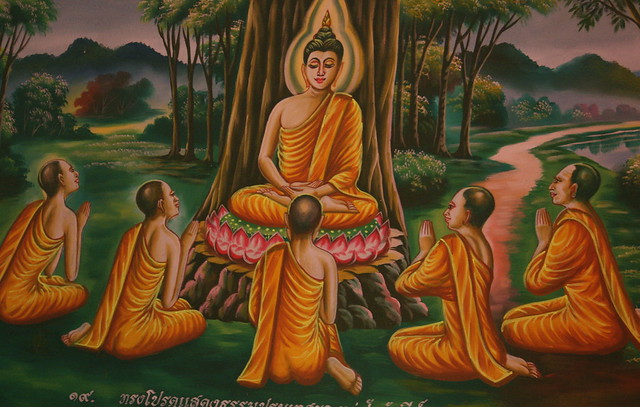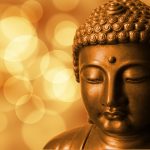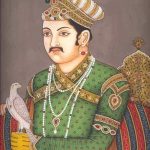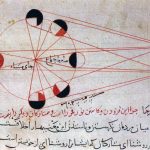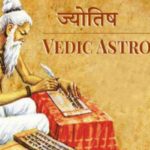Astrology is a practice that helps a person look into the future. Buddha wanted his followers to focus on the present. So the opinion of Buddha on astrology was generally negative.
Buddha on Astrology
Buddha emphasized the idea of living in the present. Buddhism focuses on Karma and its effects. Your past deeds determine your birth and the course of your life. Only by being mindful and through self-realization can you break this cycle.
Worrying about the future and the past, consulting astrologers about your destiny could all distract you from focusing on the present moment, to develop detachment.
Buddha on Astrology – Lowly Art
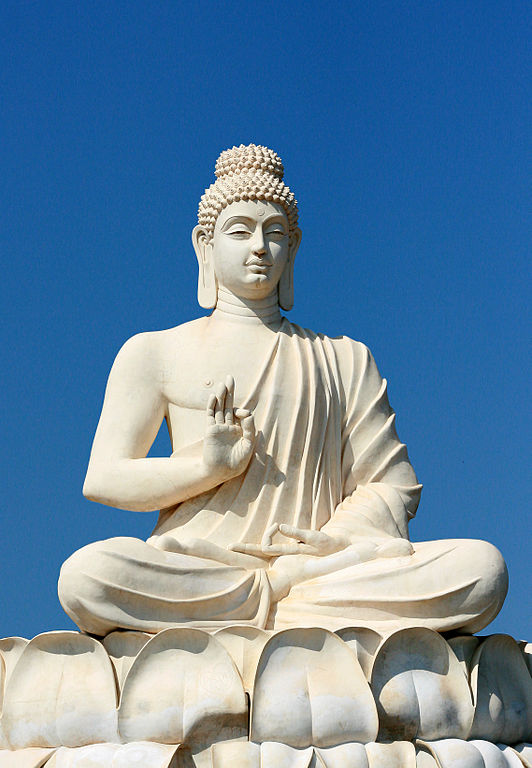
According to Buddha, astrology, enchantments, etc. were lowly arts. He made many assertions about astrology that emphasize this view. Here are a few Buddha quotes on astrology:
In the Bhaddekaratta Sutta, he declares, “a person who does what has to be done at the present moment lives an entire life of auspice.” Buddha implies that anyone who waits for an auspicious moment to initiate a task just procrastinates. If something has to be done, you should do it at once, not at some future auspicious moment.
In the Anguttara Nikaya Buddha stresses the need to look for compatibility of views between couples instead of their horoscopes. A similarity of thoughts and views is the basic need for a happy married life.
In another place, he again derides the practice of astrology. In the Brahmajala Sutta, He speaks out against those who practice astrology. He says, “Whereas some ascetics and Brahmins make their living by such base arts as predicting an eclipse of the moon, the sun, a star; that the sun and moon will go in their proper course – will go astray; that a star will go on its proper course – will go astray;…..and such will be the outcome of these things.” Lord Buddha views these as lowly practices, and he declares himself to be against these arts.
Buddha advises his disciples to find the courage within themselves to face problems in life. In the Jata Sutta, He says, “the person who is of virtue and wise, the monk who is ardent and astute can untangle the tangles of life”
Buddha’s View on Astrology – How You Can Be Led Astray
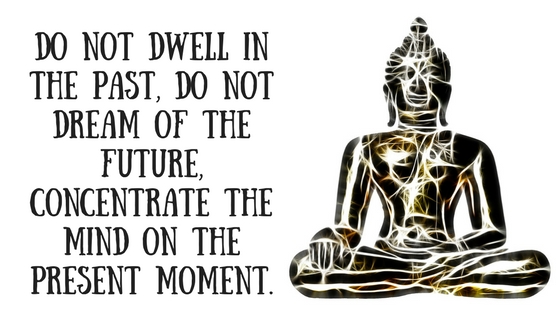
In the Nikkatta Jataka, there is a story about a manipulative, evil astrologer. An eminent astrologer feels insulted when he is not consulted on setting a date for a wedding. So, he uses his art to ruin the event. He tells the groom’s parents the marriage will not produce auspicious results. The wedding is stopped, and the groom is thus prevented from marrying a good woman. This helps illustrate the opinion of Buddha about astrology.
Thus, Buddha asserts that you need to handle your own affairs instead of depending on what the stars and planets in the sky say about it. He says “The fool who procrastinates, waiting for an auspicious time, will never achieve his objective. The auspicious thing is achieving your objective”
In one section of the Vinaya Pitaka, he explicitly forbids monks (both men and women) from indulging in such practices. He likewise forbids the practice of enchantment, use of aphrodisiacs, and other occult arts.
Thus, Lord Buddha was definitely against the study and practice of astrology. He wanted his followers to take responsibility for their own destiny and stay on the path of spiritual quest. Astrology, enchantments and other such practices could distract you from the path of your spiritual journey. So, he forbids these acts explicitly for Bukshus and Bhikkhunis. He also advised the common people against seeking astrological counsel.

Astrology in Buddhism
The view of Buddha on astrology was negative. However, astrology later became integrated into Buddhism for various reasons. The practice, long entrenched in the minds of people, cut across geographical and cultural divides. Moreover, Buddha’s own life was filled with special events that occurred on the Full Moon Day. These include his birth, his death, and his first discourse. In certain sects of Buddhism, Full Moon Day is significant as Amitabha Buddha Day, the Day of the Celestial Limitless Buddha.
Initially, astrology’s importance in Buddhism related to tracking the lunar phases, to mark auspicious occasions for certain functions, death ceremonies, etc. It later led to a broader system that included foretelling, advice for future actions, determining the impact of celestial events and so on. As Buddhism traveled to other lands like China, the rulers and the people of these lands too had faith in astrology and used it in many ways. So, slowly, Astrology got integrated into Buddhism. Chinese astrology absorbed many principles of Vedic astrology that came along with Buddhism. In Tibet, there was an amalgamation of different astrological systems, of their local religion, Indian astrology, and Chinese astrology. While Buddha himself disapproved of astrology, Buddhism later accepted and adopted astrological systems.




